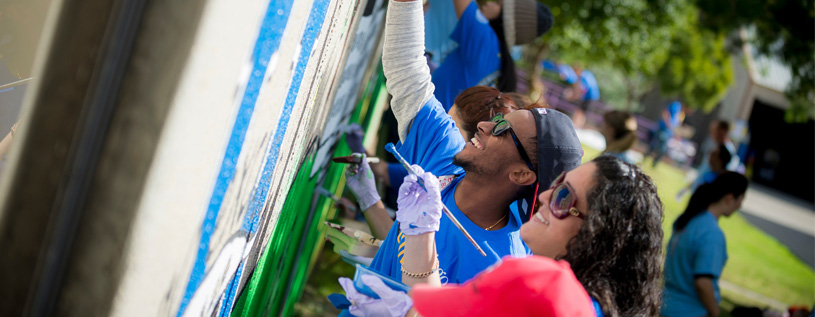Eighth College
- Meet Eighth College
- Academics
- Critical Community Engagement
- Residential Life
- Student Life
- New Students

Eighth College has ambitious and actionable learning objectives that are characterized by the following:
UC San Diego students, and those in Eighth College particularly, are in a unique position to critically reflect on and put into action their connections to those at UC San Diego, the region, and more broadly the world. The reflection process requires courage, humility, and self-awareness. Our program cultivates conditions for reciprocity, ethical relations, and strong interpersonal communication skills (including advocacy for self and others).
UC San Diego students and those in Eighth College especially must have a deep understanding of the factors that have historically led to discrimination, structural and institutional racism, social exclusion, intentional and unintentional marginalization and harm to diverse communities. These conditions have in part also created mistrust among diverse communities to broader social institutions.
Eighth College's general education program prioritizes awareness of how historical factors interplay with current conditions in order to work collectively towards community-centered solutions to today’s most challenging problems. This includes preparation for responding to those that will arise in future moments.
The multi-disciplinary curriculum of Eighth College seeks to build students’ abilities to engage with diverse communities using a holistic approach to well-being by addressing not only physical health, but emotional health, social support by creating community within the college, and to foster intellectual curiosity that considers how prior and current approaches are rooted in an ethical approach to engaging community members and partners as part of the discovery process and strategies to create bold solutions to diverse global and local challenges.